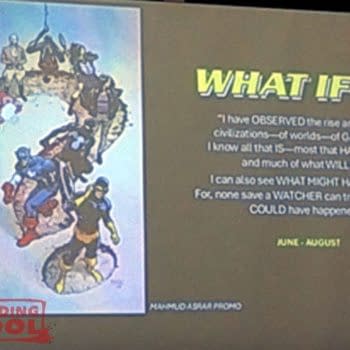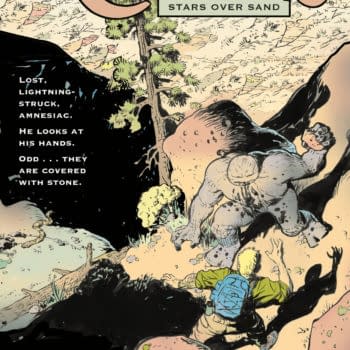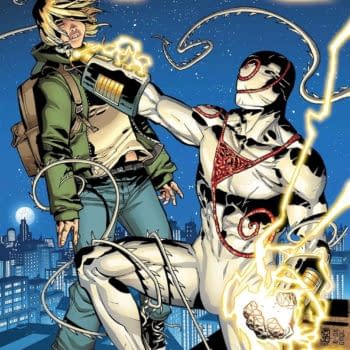Posted in: Comics, Review | Tagged: biblical, boom studios, christian, jakub rebalka, Jeff Loveness, judas, religious
Judas #4 Review: Thoughtful, Beautiful, and Manages to Overcome its Own Indecisive Ending
Judas continues to wander Hell, trekking past demons and lost souls, and he finds Jesus Christ himself suffering in the pit of eternal damnation. Judas is baffled to finds the Messiah in Hell, and, in learning how, he comes to some final understandings about the nature of life, himself, and God.
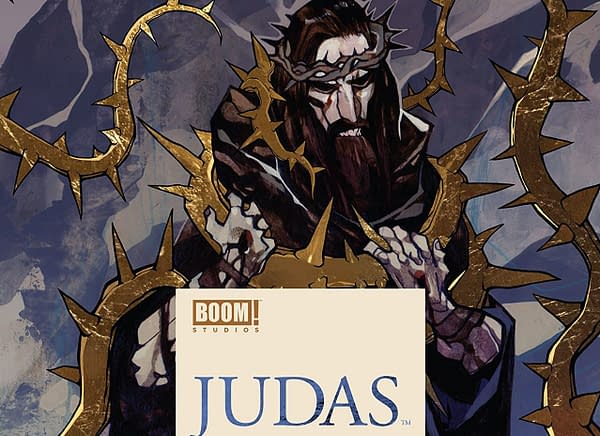
Judas #4 surprises with a far more hopeful, uplifting, and even pro-gnostic stance than one would have expected from prior issues. What was once a nihilistic trek through infernal oblivion guided by a damned character ends with a message of hope, love, and the eternal value therein.
And, it works. It doesn't fall into trap of completely kowtowing to religious doctrine, as that would be lackluster and contrary to the implicit goals of the opening chapters. There are still problems worth mentioning with the ending, but we'll get there.
Placing Jesus Christ in Hell at all is an interesting move, though not unexpected given some of the conceits of the story. This is where the story starts to turn away from its harsh critique of Christianity to a friendlier view. That may kill it for some people; it parallels the story of Abraham and the Binding of Isaac with the crucifixion of Christ, which is admittedly writ large in Christian teaching. This dawns on Judas, and, for a moment there, it juggles some really interesting ideas.
What if the Christian God exists but he's not perfect? What if reality is wrong? What if the story of existence is cyclical (that gets a little Dark Souls-ian)? What if Jesus was not without sin?
That last one is a major plot point, and that sin was against Judas Iscariot. However, the ending, without giving it away—though you can probably guess from what I've said—takes that to its logical conclusion.
Unfortunately, the ending is the weakest part. I will spoil this part; Judas is still in Hell at the end of the story. This is supposed to be tempered by the fact that Jesus is taking a message up to Heaven to a loved one on Judas' behalf, and Judas works as a loving and caring force to the lost souls in Hell. It also trots out the "God's ways our not our ways" mantra. However, this still leaves Judas in Hell and without the light of God, so he's still implicitly suffering depending on how closely we are sticking to the vague depictions of Hell that exist in the Bible and Christian teaching. This leaves the story feeling indecisive and noncommittal.
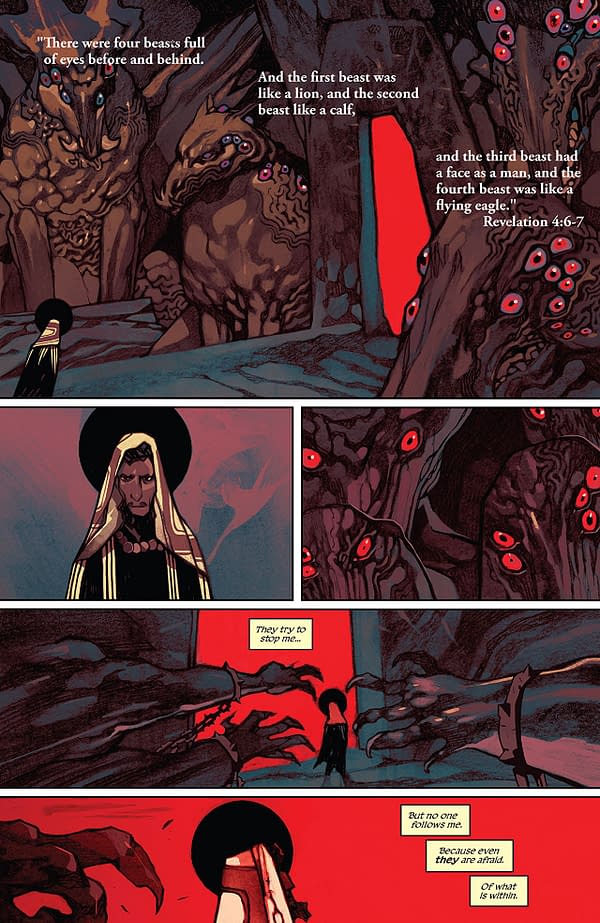
Jakub Rebelka's artwork continues to impress with darkly beautiful depictions of eternal damnation, the interesting addition of the black halo to our protagonist, and the inspirations from Medieval Christian artwork that the style takes. A lot of imagination is infused into the visuals, and his cold and oppressive color work brings it all together near-perfectly.
Judas #4 brings a thoughtful if weak ending to this story. It is still greatly enjoyable and leaves a lot to think about. The uplifting nature of the ending is still functional, even if the narrative aspects are questionable. That said, I still recommend this ending to the Loveness and Rebalka miniseries. Pick it up.









